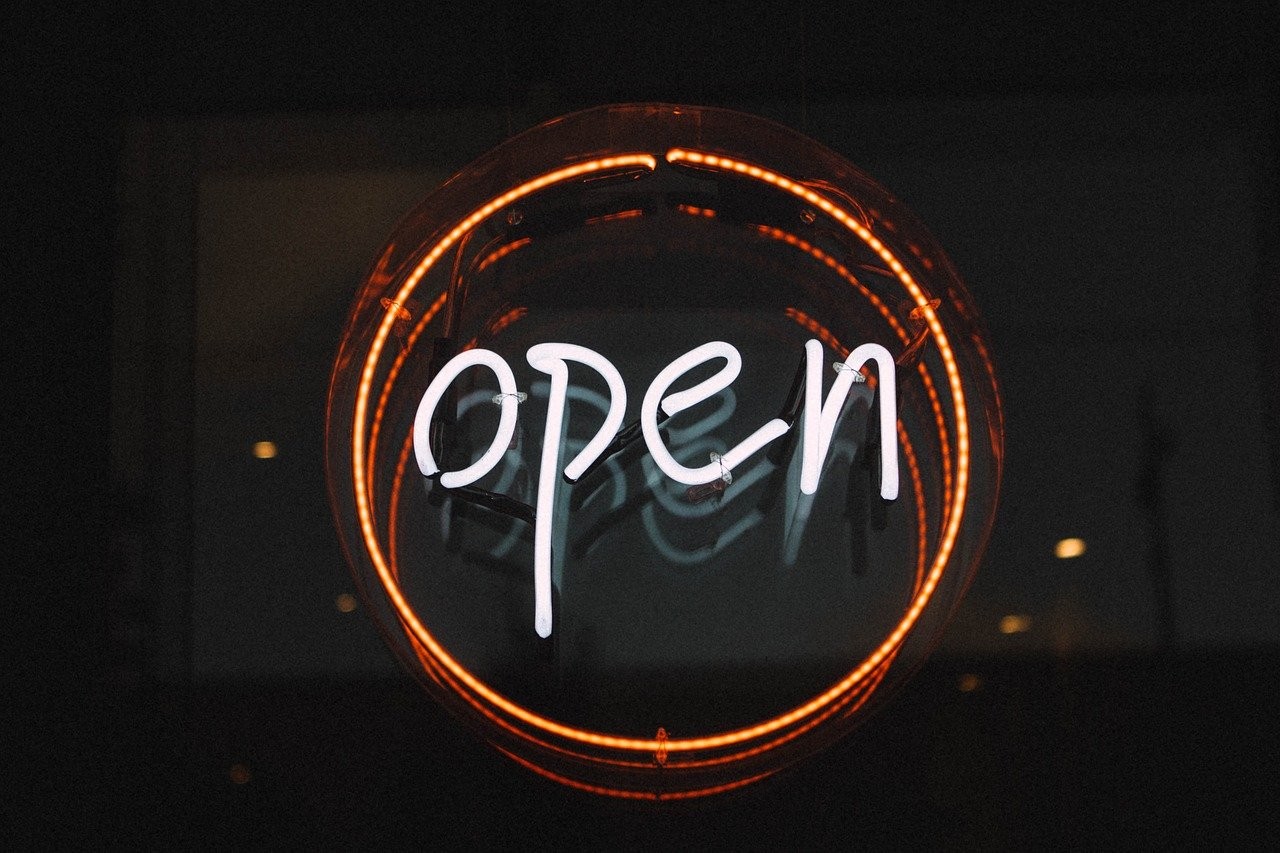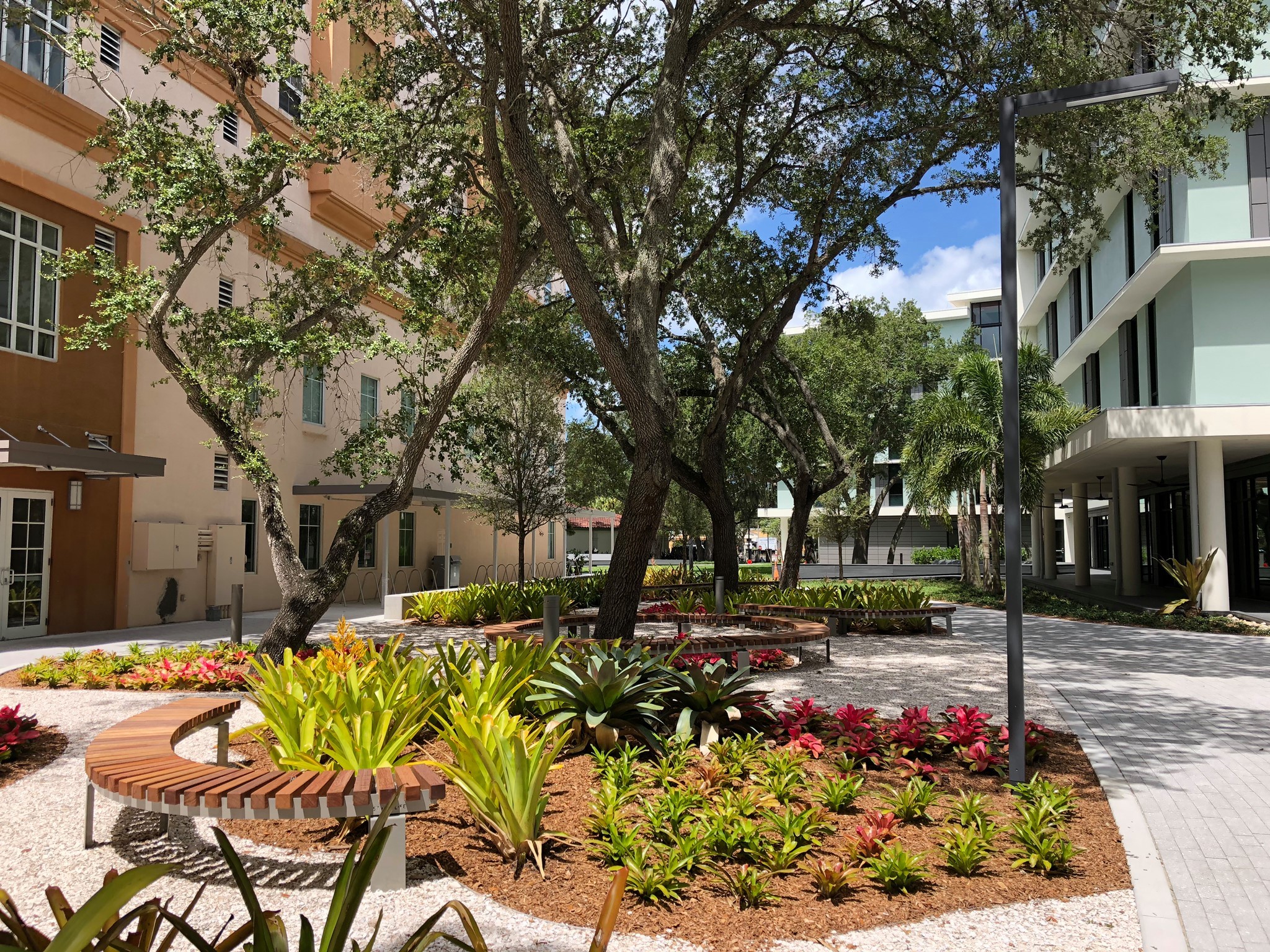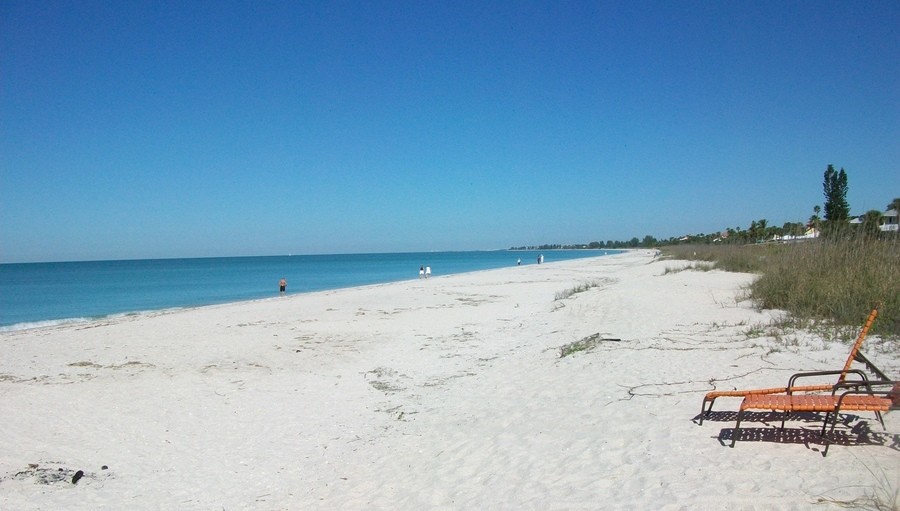SRQ DAILY Sep 26, 2020

"The physically distanced world the COVID-19 pandemic created over these last six months has shown us how incredibly important creativity is to every economic sector."


With an election barely a month, it’s hard not to view major policy shifts through a partisan lens. When Gov. Ron DeSantis abruptly announced Friday that Florida would move into Phase Three of reopening — and moreover would largely preempt local government efforts to restrict business — skepticism followed.
One hopes this change comes based on data, not desire to move past pandemic conditions prematurely. On that front, it’s notable reports of new cases have been on the decline. Certainly many businesses living under burdensome rules, most notably a 50% capacity limit on restaurants and bars, feel severe economic pain that cannot last forever. In addition to more than 14,000 Florida lives, this pandemic consumed independent establishments like Smacks and enRich Bistro.
It’s tougher to swallow pure motives when one considers mere days ago the Governor went from being “absolutely appalled” about the death of George Floyd to becoming anxious to crack down on protesters. But perhaps that skepticism in fact shows why regulation cannot and will not be what truly governs public behavior. People across the political spectrum, including many involved in politics directly, lament the problems that come as everything from lockdown orders to mask usage to the approval of a vaccine turned politicized. More than six months after Florida’s first coronavirus diagnosis became public thanks to a letter to patients at Doctors Hospital of Sarasota, there’s a hunger for normalcy unlike anything in contemporary memory.
The slow boil of the COVID-19 crisis makes perspective difficult. There’s less support now for limiting bar capacity than there was for a total lockdown in April. Officials at the local and federal level will stand for election in November, and many face questions on a daily basis about when the government will end draconian measures.
There’s also evidence government regulations are not what adjusted citizen behavior in the midst of this crisis. Counties of similar size with and without face covering ordinances, for example, saw roughly the same amount of mask usage. Yes, that’s noteworthy to me months after writing in this space that such a nudge from local government might be what’s needed to put face coverings en vogue. I do think now that more people in public use masks than don’t. Maybe that’s thanks to ordinances like those in place in Sarasota and Venice. Maybe it’s reasonable reaction to the surge in reported cases this summer.
But what I actually believe drove the change was rules in major retailers. Who would have predicted Walmart could govern public actions more effectively than City Hall?
Speaking briefly with some restaurant owners I know, there’s mixed emotions about how to respond to news they can operate with full dining rooms. Some appreciate the ability to make that decision but will limit seating for the time being. There’s a different mindset when forced to act a certain way and when the responsibility of decision-making falls on your shoulders.
But there’s also agreement among business owners the government will not determine whether reservations sell out at fine dineries today. Rather, consumers themselves will decide when they feel safe in a crowded dining room with A/C recycling the breath of strangers.
On that front, I’m reminded of a man not always quoted here with much reverence. Early in the run for The Apprentice, Donald Trump explained a truism about business. ”The market is so smart,” he said. It puts the highest price on the best art, and leaves chotchkes on the shelf if they get priced 50 cents too high. Now, we must hope it knows the best way to limit the spread of COVID-19.



It was just five months ago when I last wrote about the importance creativity and the coming Creative Age. I think most would agree that, in those five short months, our world has been turned upside down.
Everyone has had to adjust to a multitude of changes that range from wearing face coverings and physically distancing from friends and loved ones to becoming adept at remote learning and working. Gone, at least temporarily, have been things we had always taken for granted – going to school, going to the movies, having fun at sporting events and even just going out to dinner with friends.
Schools, including Ringling College of Art and Design, have had to reimagine their instructional and student engagement plans while implementing measures to help maintain the health and safety of their students, faculty and staff. How do we deliver in-person courses in a physically distanced environment? Here at Ringling, we use adjacent rooms, repurpose large rooms for smaller classes and leverage technology to offer virtual and remote instruction. Another area to consider for residential campuses like ours is managing student life and the residential experience in a time of limited gathering sizes. Once again, creative thinking helped us craft virtual and online programs for new student orientation that included things like virtual coffee houses and for future student engagement efforts to help build community for students who are learning here in-person and remotely from around the world.
The physically distanced world the COVID-19 pandemic created over these last six months has shown us how incredibly important creativity is to every economic sector. It has played a crucial role in keeping us informed, engaged and connected during a time in which we have had to change everything about how we work and live.
If ever creative thinking was needed to solve problems, it is now. And we have seen its impacts all around us. Virtual amusement rides. Videos to help us understand how to keep ourselves and each other safe. Concerts via Zoom. Disney specials showcasing artists performing from home to bolster the spirits. Conferences, educational and social events delivered remotely. Even watching Zooms to see what someone’s living area looks like. We have seen amazing creativity over the last six months and it has helped to keep our worlds turning.
According to Mitchel Resnick, professor of learning research at MIT Media Lab, director of Lifelong Kindergarten research group, and founder of the Scratch project, “The coronavirus crisis highlights the growing need for creativity in today’s society,” and that although “situations like the coronavirus pandemic [hopefully] will be rare… the need to deal with unexpected challenges is becoming more and more common. It is becoming the new normal. In today’s fast-changing world, people are confronted with a never-ending stream of unknown, unexpected, and unpredictable situations. The ability to think and act creatively is now more important than ever before.”
Bas Korsten, global chief creative officer at Wunderman Thompson, asserts creativity can help get us through, and out of, this pandemic. “Creativity in the ways we communicate when we can’t be physically together; creativity in the ways the world’s best universities and pharma companies collaborate to come up with a vaccine for the virus; creativity in the ways we make living with our mothers-in-law work; creativity in the way we use humor to flood each other’s social channels; creativity in the ways we show support for the healthcare professionals, teachers, supermarket employees and everyone else who is risking their health to help us through this. Creativity as a potent source of survival is everywhere.”
I have to say I firmly agree with Bas Korsten when he says that combining the “holy trinity of creativity, technology, and humanity is the only way forward.” We have seen this trinity carry us through the last six months, and I have no doubt it will see us through this pandemic.
Dr. Larry Thompson is president of Ringling College of Art and Design. 


We have each served as mayor of the City of Sarasota, and know what it takes to do the job of a city commissioner well. That is one of the reasons why we are supporting Terry Turner for City Commissioner for District 2. In addition:
• Terry is a very bright person with a strong background in finance. The city faces financial challenges that are worsening with the coronavirus pandemic. We badly need someone on the city commission that can guide it through these difficult conditions.
•Terry has senior level executive experience that has taught him how important it is to listen, and listen carefully, to all sides of issues. He knows this is an integral part of analyzing problems and finding the right solutions.
•He is a person of unquestioned character, integrity and independence.
Terry Turner is absolutely the right person at the right time for the Sarasota City Commission. We urge all in District 2 to support Terry and vote for him on November 2.
Nora Patterson, Mollie Cardamone, Richard Clapp, Elmer Berkel and David Merrill and all former mayors of the city of Sarasota. 

Join Claudia Baeza, a Kripalu trained yoga instructor, for Yoga and Meditation on the loggias of the Museum of Art Courtyard for a unique opportunity to gently move the body and calm the mind. Tickets must be purchased in advance.
The Ringling, 5401 Bay Shore Road
Nostalgia can be a powerful trigger of emotions and memories, sometimes even invoking forgotten past events, places, and moments. Nostalgia also sells. Products replicating or calling back to the 1980’s and 1990’s have seen a surge (resurgence?) of popularity recently. These products are often marketed to younger generations who are fascinated with the decades, right along with the adults who actually owned the original items - or still do.
Dean photographs both the popular and old toys he still has from his childhood. Well-known toys that evoke nostalgia in others, the obscure tokens, and the items made by companies that no longer exist; all have histories which have been lost to time. In doing so, Dean found himself pondering the origins of the objects, who might have designed and created them, how many of them were made, the persistence of similar colors, and how many still exist. Over time, each object also picks up its own unique set of bumps and scratches, becoming tiny fragments of years that only grow more distant. Dean creates new art out of the mass-produced trinkets. He makes new memories out of the old, playing with color and shape; creating something for the viewer to enjoy looking through. Perhaps connecting with them as well by unlocking a buried snapshot of a distant time and place.
Patrician Thompson Gallery in the Keating Center, 2700 N Tamiami Trail, Sarasota, FL 34234
No name has dominated Sarasota’s history like that of John Ringling, commonly known today as the “circus king who built a museum and started an art school.” A century ago, Ringling and his wife, Mable, spent a dozen quiet winters in Sarasota before the dramatic Florida Land Boom began in the 1920s. Always one to recognize opportunity, Ringling, often working with developer Owen Burns, seized the chance to profit from his significant land holdings in Sarasota and on its barrier islands. While developers George Merrick, Addison Mizner, Glenn Curtiss and Carl Fisher fought over the Miami-Palm Beach corridor, Ringling had freshly minted Sarasota County largely all to himself. This program traces the riches-to-ruin story of both the Florida Boom and John Ringling. He had many acquaintances but few friends, yet he reshaped Sarasota’s image and helped make it the cultural capital it is today. In this lecture, you will learn details of Ringling’s life that go far beyond the common perception. Tickets: $15. Members: $10. Registration Closes On: Tuesday, September 29, 2020 @ 12:00 AM
Online Seminar
Join Historic Spanish Point for incredible stories on the artists that shaped and influenced history around the world. We are proud to offer this art lecture series with Baila Miller as part of our monthly programming. Baila’s unique storytelling presentations will connect you to the art world in a whole new way. All presentations take place at Historic Spanish Point’s Visitor Center Classrooms. Tickets: $15 for Historic Spanish Point members and $20 for future members.
Thanks to the pandemic, the United States plunged from a record-breaking economic expansion to a severe recession. What choices do we need to make to reverse that trend and secure our economic future? William Dudley (’71-’74) is a senior research scholar at Princeton University’s Center for Economic Policy Studies. He served as president of the Federal Reserve Bank of New York from 2009 to 2018 and was also the vice chairman of the Federal Open Market Committee. In 2019, Dudley spoke about our nation’s record-breaking economic expansion. Shortly after, the pandemic cut that short. With breathtaking speed, the United States economy has plunged from its recent heights to the deepest recession in decades. The American economy is sick. What is Dudley’s prescription to bring the patient back to health? What choices must we make to jump-start a recovery? How long will it take to turn things around? Depending on our choices, Dudley will define the best-case and worst-case scenarios.
Vancouver-based artist Howie Tsui’s solo exhibition, Retainers of Anarchy (2017), is an amalgamation of martial arts characters and techniques woven together with threads of social and political realities of present-day Hong Kong. Presented as a non-linear counter narrative in the form of a twenty-five metre hand-drawn animation, Retainers of Anarchy offers an opportunity to reflect on notions of identity and nationhood using Hong Kong’s past and more recent surge of political unrest. This exhibition is organized and circulated by the Vancouver Art Gallery, Canada.
The John and Mable Ringling Museum of Art, 5401 Bay Shore Rd., Sarasota
Visit the Sarasota Farmers Market in Downtown Sarasota from 7am-1pm, rain or shine. We understand the severity of COVID-19; therefore, we are instituting some guidelines for both vendors and customers to follow as you join us downtown. Customer Code of Conduct: Stay home if you are sick or have been in contact with someone who is sick, Make a shopping list before coming, Pre-order and prepay vendors online if possible, Designate one shopper per household, Leave pets at home unless it is a service animal, Wear a mask, Look with your eyes only touch what you will buy, Maintain 6 feet of space between you and any others, Shop quickly and get everything to go, No gathering keep walkways clear, Hand sanitizer available at all vendor booths and sanitizing stations.
Downtown Sarasota, Lemon Avenue and State Street, Downtown Sarasota
As part of Florida Studio Theatre’s Suffragist Project, an artistic celebration of the 100th Anniversary of the ratification of women’s right to vote, this stellar all-female quartet which includes Artist Series Concerts co-founder Lee Dougherty Ross, performs pieces by Fanny Mendelssohn, Clara Schumann, Amy Beach and Marion Bauer. The concert was filmed in July 2020 at Church of the Palms in Sarasota. Women of Note is hosted by Marcy Miller, executive director of Artist Series, and features cameo appearances by Kate Alexander, Ariel Blue and Meg Gilbert. With Jenny Kim-Godfrey, soprano; Robyn Rocklein, mezzo soprano; Gail Berenson and Lee Dougherty Ross, piano.

SRQ DAILY is produced by SRQ | The Magazine. Note: The views and opinions expressed in the Saturday Perspectives Edition and in the Letters department of SRQ DAILY are those of the author(s) and do not imply endorsement by SRQ Media. Senior Editor Jacob Ogles edits the Saturday Perspective Edition, Letters and Guest Contributor columns.In the CocoTele department, SRQ DAILY is providing excerpts from news releases as a public service. Reference to any specific product or entity does not constitute an endorsement or recommendation by SRQ DAILY. The views expressed by individuals are their own and their appearance in this section does not imply an endorsement of them or any entity they represent. For rates on SRQ DAILY banner advertising and sponsored content opportunities, please contact Ashley Ryan Cannon at 941-365-7702 x211 or via email |
Powered by Sarasota Web Design | Unsubscribe













